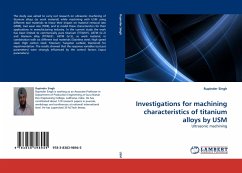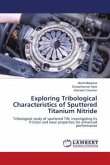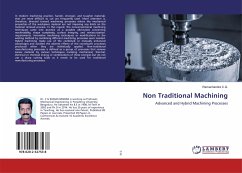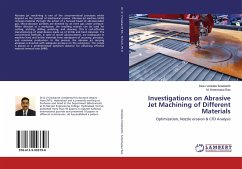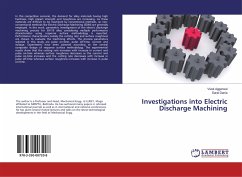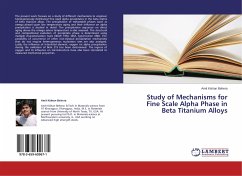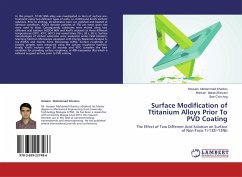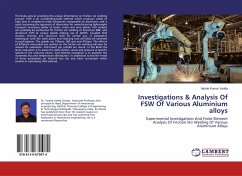The study was aimed to carry out research on ultrasonic machining of titanium alloys (as work material) while machining with USM using different tool materials to know their impact on material removal rate (MRR), tool wear rate (TWR), and to model these characteristics for their applications in manufacturing industry. In the current study the work has been limited to commercially pure titanium (TITAN15, ASTM Gr.2) and titanium alloy (TITAN31, ASTM Gr.5), as work material, in combination with six different tool materials (Stainless steel; High speed steel; High carbon steel; Titanium; Tungsten carbide; Diamond) for experimentation. The results showed that the response variables (out put parameters) were strongly influenced by the control factors (input parameters).
Bitte wählen Sie Ihr Anliegen aus.
Rechnungen
Retourenschein anfordern
Bestellstatus
Storno

